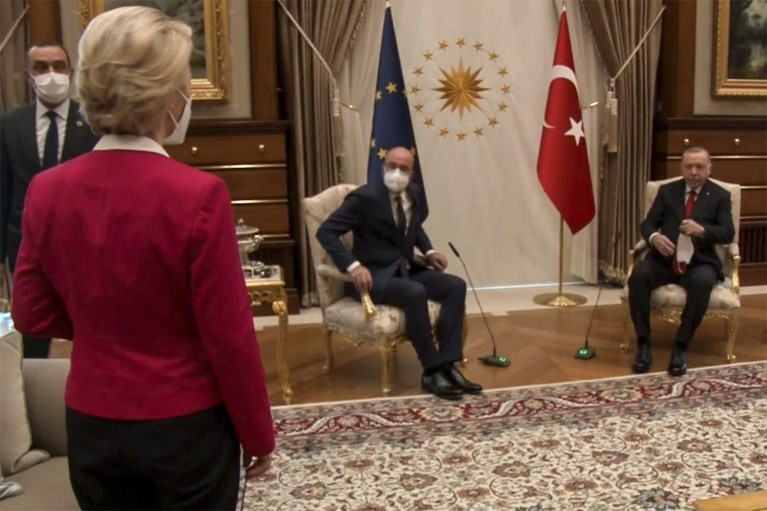Charles Michel, president of the European Council, has suffered sleepless nights since the incident known as ‘sofagate’ that took place in Ankara this week.
The incident happened in the presidential palace of Turkish president Recep Tayyip Erdogan, when Michel was on an official visit, accompanied by European Commission president Ursula von der Leyen.
But when the two highest EU dignitaries were ushered into the reception room, they found only two armchairs set up, one of which was meant for Erdogan.
Michel took his seat, leaving Von der Leyen stranded. Preferring not to make a scene, she took a place on the couch to the side of the room.
Michel was immediately criticised for his ungentlemanly behaviour, particularly since the two presidents had come to discuss gender equality and Turkey’s withdrawal from the Istanbul Convention, which aims to fight against violence against women and girls.
Related News
- The Recap: Signatures, Support & 'Sofagate'
- 'Sofagate': Wilmès calls Charles Michel a strong advocate for gender equality
- Women’s groups launch petition calling for Charles Michel to resign
“The images are shocking. The arrangement of the seats was humiliating and that is very regrettable,” Michel admitted today in an interview with several European newspapers.
“I haven't been sleeping well since the sofa incident. The movie keeps running through my mind.”
Officially, EU sources blame the lack of access allowed by Ankara to Michel’s protocol service prior to the meeting. Von der Leyen’s own protocol service was not present for vague reasons to do with Covid-19. At the same time, however, he is willing to accept some responsibility, though not too much.
“I take my share of responsibility for the incident," he said. “Ursula von der Leyen conveyed the message about women's and human rights to the Turks. If I had stepped in to offer a chair, it might have come across as patronising.”
“I was afraid of creating an incident,” he goes on. “We worked hard for months to get across a positive message in Turkey. If I had responded in a visible way in front of the camera, I would have nullified those efforts and preparations.”
The fact that the desire not to create an incident led directly to the creation of an incident has not gone unnoticed.
Alan Hope
The Brussels Times

